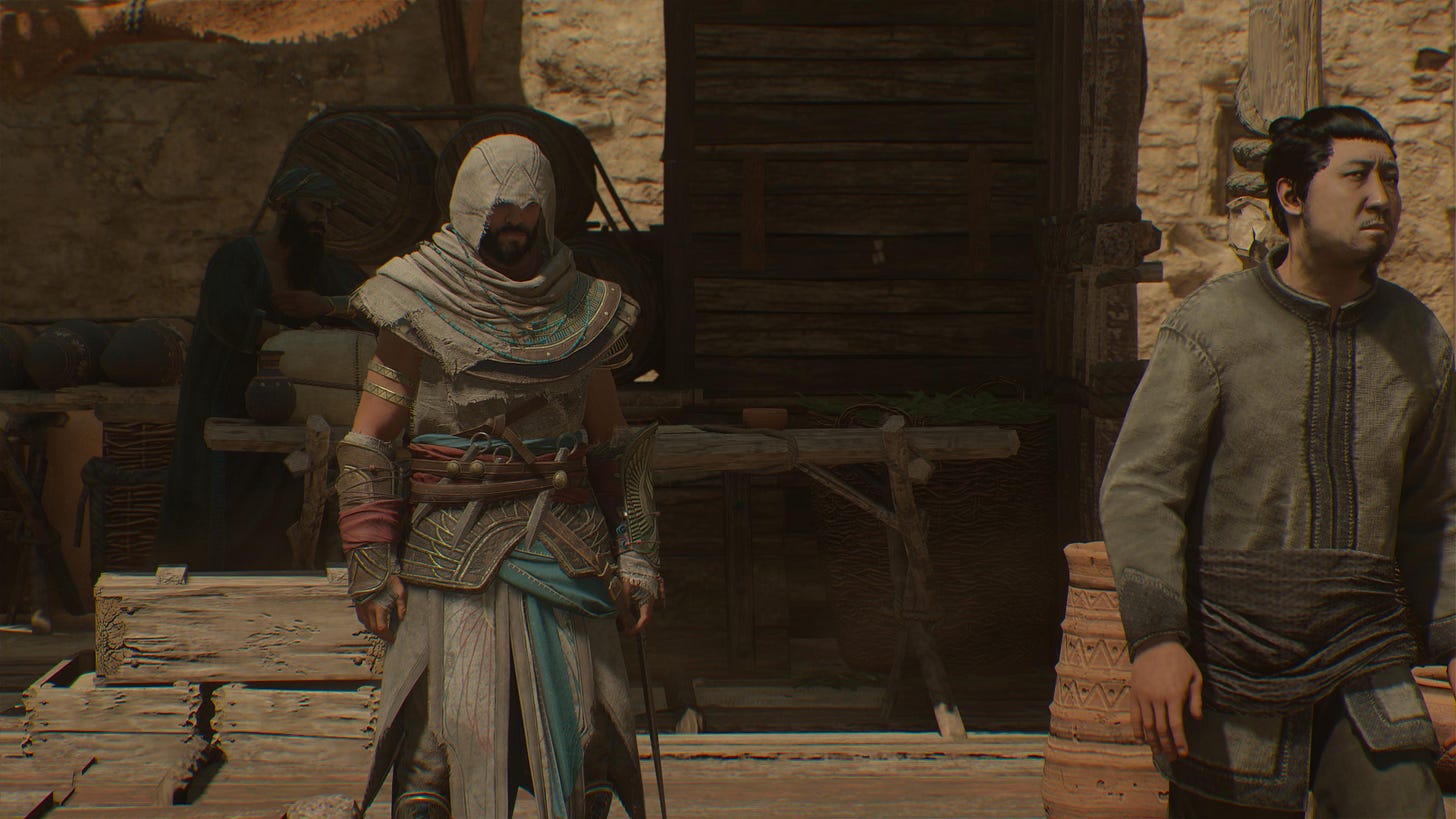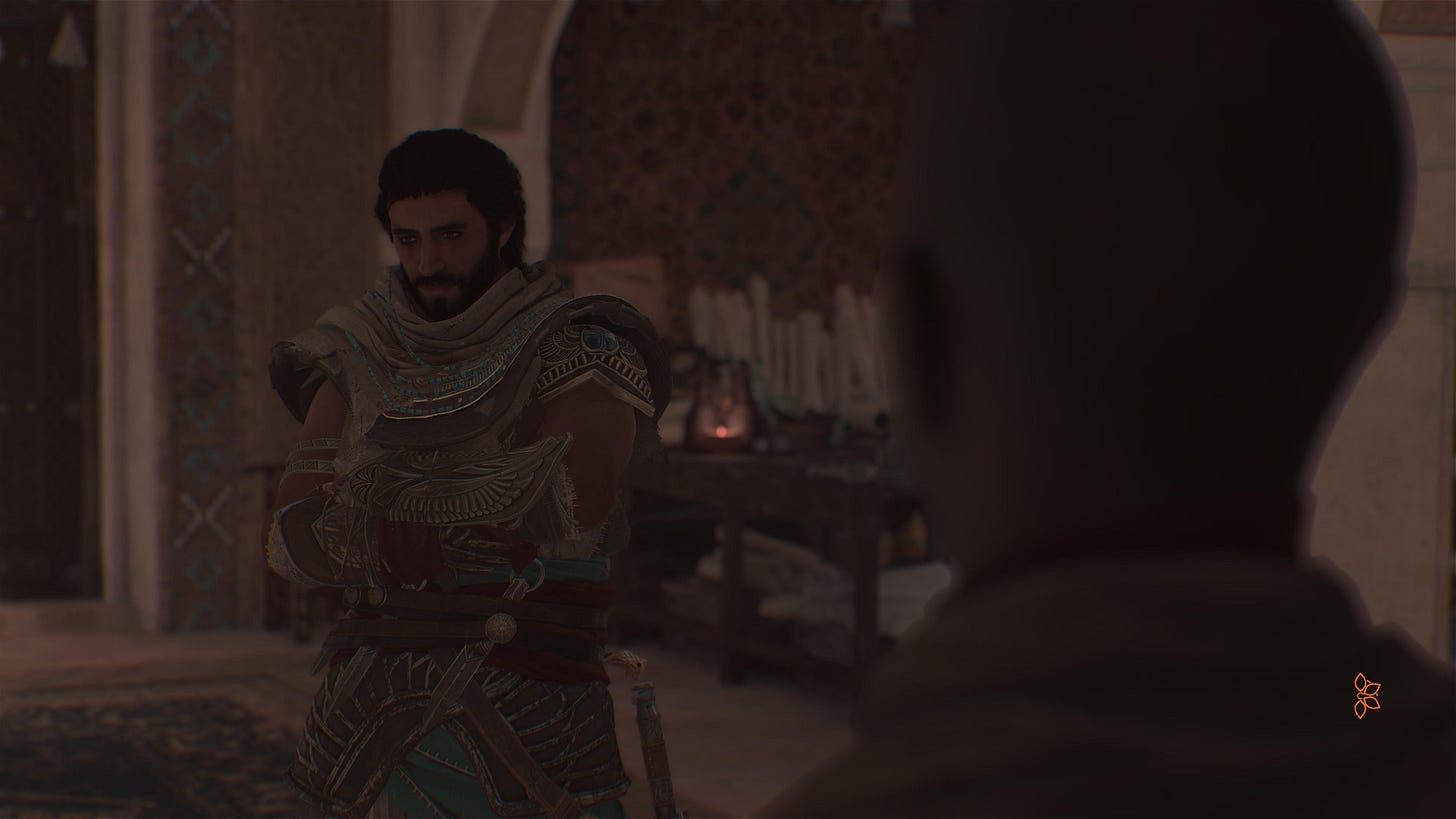Review: "Mirage" is exactly what "Assassin's Creed" needed
Minus a few irritating (but hardly game-breaking) bugs
When many games feature the Middle East and Arabs as stereotypical enemies, it's refreshing to see a game give them proper representation. Ubisoft’s latest Assassin's Creed Mirage honors the rich history of the Middle East and the Golden Age of Islam. Bloody yet educational, this title is best suited for older adolescents and upwards.
The Islamic Golden Age, traditionally dated from the 8th-13th centuries, gifted civilization with advances in mathematics, natural sciences, social sciences and engineering. Mirage drops players into 9th century Baghdad during a brief period of unrest known today as the Anarchy at Samarra during the Abbasid Caliphate.
First introduced in 2020's Assassin's Creed Valhalla, Basim ibn Is’haq (voice of Lee Majdoub) is a street thief full of ideals with a past shrouded in mystery. He joins the Hidden Ones, or the Assassins, to fight for peace and liberty. However, he yearns to also find out about his background and the visions he's experienced since childhood.
Basim and the Hidden Ones work to thwart the corrupt influences of the Order of the Ancients. The Order seeks to bring peace through control and oppression. Inspiration for these enemies is drawn heavily from the 12th century Knights Templar and Illuminati conspiracy theories.
While there is bloody combat, these effects can be turned off in the settings to be exceedingly minimal. Dialogue contains some infrequent foul language.
Understandably, there may be some concern that Christian enemies or a focus on Islamic history imply an anti-Christian bias. However, much like in real life, Christians are portrayed as robust humans with all the flaws of our fallen nature. While the Order is full of crooked Christians who do not uphold the true teachings of the Church, Basim encounters many devout adherents of the faith.
There are also some who will bemoan that it features a Muslim character as the protagonist or the large presence of Islam — in 9th century Baghdad — because of negative stereotyping of the religion as extremist and violent. But Muslims and Catholics worship the same God, and the Chair of St. Peter has offered us guidance several times over when it comes to how we should treat our brethren.
In Africae Munus, Pope Benedict XVI urged Catholics to "work together to banish every form of discrimination, intolerance and religious fundamentalism" when it comes to the Muslim community. Pope Francis also exhorted us in Evangelii Gaudium that, "faced with disconcerting episodes of violent fundamentalism, our respect for true followers of Islam should lead us to avoid hateful generalizations."
As many previous Assassin's Creed titles have in the past, this one continues to feature historical figures, including the Banu Musa brothers, scientists and inventors who made advancements in astronomy, geometry and mathematics, and Ali ibn Muhammad, leader of the Zanj Rebellion against the Abbasid Caliphate.
Assassin's Creed Mirage is the first title in the series to feature Arabic dubbing, focusing on historic usage of the language instead of modern Arabic. Players can also explore the educational database in-game, which illustrates 9th century Abbasid history, culture and art.
Most delightfully, however, is that Mirage returns Assassin’s Creed back to its beautiful roots. Stealth and parkour skills take precedence over the open-world action of Valhalla. Baghdad’s tightly structured streets and dense city buildings are perfect for climbing and clambering away from prying eyes, and is more aligned with the early titles in the franchise. Running around as Basim in Baghdad is more like Altair and Ezio in Italy than any of the recent titles, and it’s a progression Ubisoft should stick to for the future.






